Stability means we run it. There are countries that are very stable. Cuba is stable, but that's not called stability
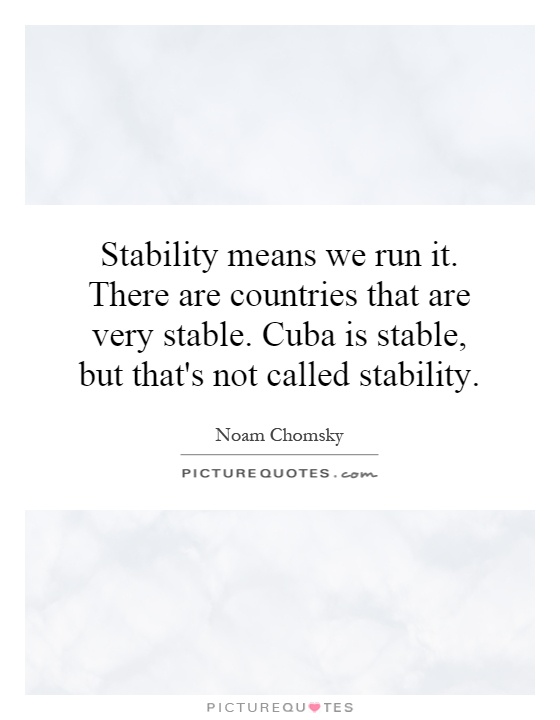
Stability means we run it. There are countries that are very stable. Cuba is stable, but that's not called stability
Noam Chomsky, a renowned linguist, philosopher, and political activist, has often critiqued the concept of stability in the context of political systems and governance. In one of his famous quotes, Chomsky stated, "Stability means we run it. There are countries that are very stable. Cuba is stable, but that's not called stability." This statement encapsulates Chomsky's skepticism towards the idea of stability as it is commonly understood in political discourse.Chomsky's critique of stability can be understood through the lens of power dynamics and control. In many cases, stability is equated with a lack of political unrest or upheaval. However, Chomsky argues that this definition of stability often masks underlying power structures and inequalities. In the case of Cuba, for example, the government may be able to maintain a sense of stability through authoritarian control and suppression of dissent. This type of stability, according to Chomsky, is not true stability but rather a facade that serves the interests of those in power.
Chomsky's perspective on stability also highlights the importance of democracy and popular participation in governance. True stability, in his view, can only be achieved through a system that is responsive to the needs and desires of the people. This requires transparency, accountability, and mechanisms for citizens to hold their leaders accountable. In contrast, a regime that maintains stability through coercion and repression is inherently unstable, as it is built on a foundation of fear and mistrust.
Chomsky's critique of stability challenges us to rethink our assumptions about political systems and the nature of governance. It reminds us that stability is not simply the absence of conflict, but rather a dynamic process that requires active engagement and participation from all members of society. By interrogating the concept of stability in this way, Chomsky encourages us to strive for a more just and equitable world where power is shared and democracy is truly meaningful.
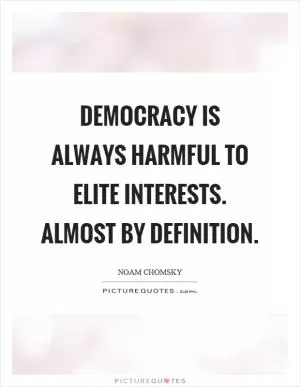
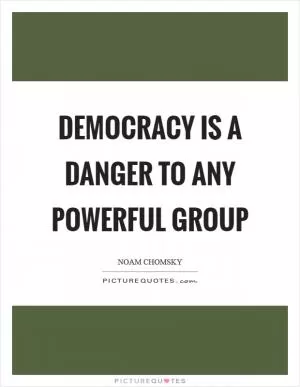

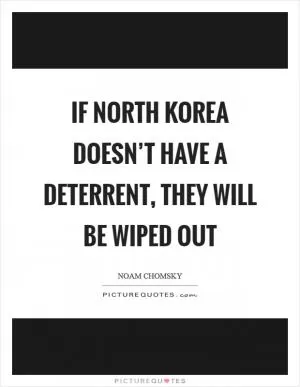
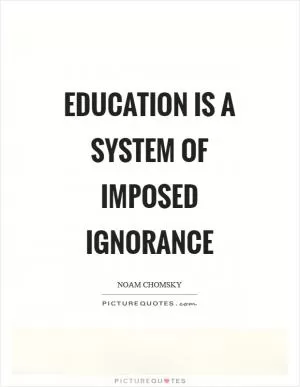


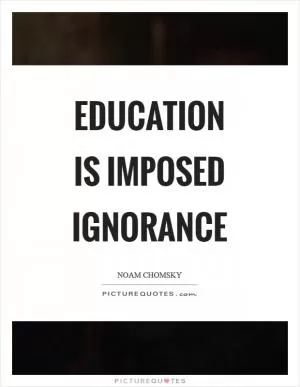
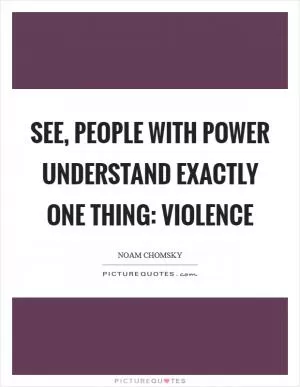


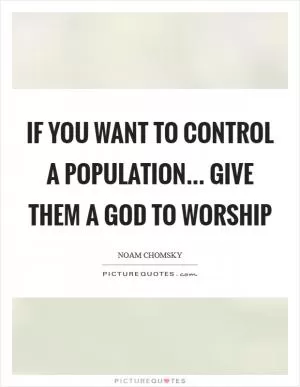
 Friendship Quotes
Friendship Quotes Love Quotes
Love Quotes Life Quotes
Life Quotes Funny Quotes
Funny Quotes Motivational Quotes
Motivational Quotes Inspirational Quotes
Inspirational Quotes